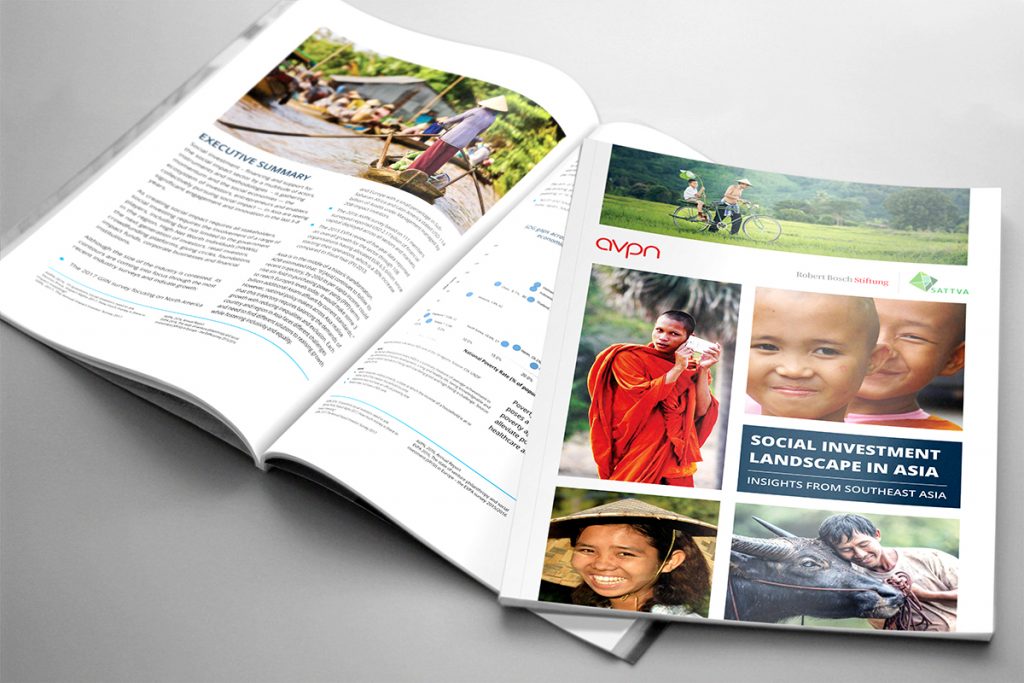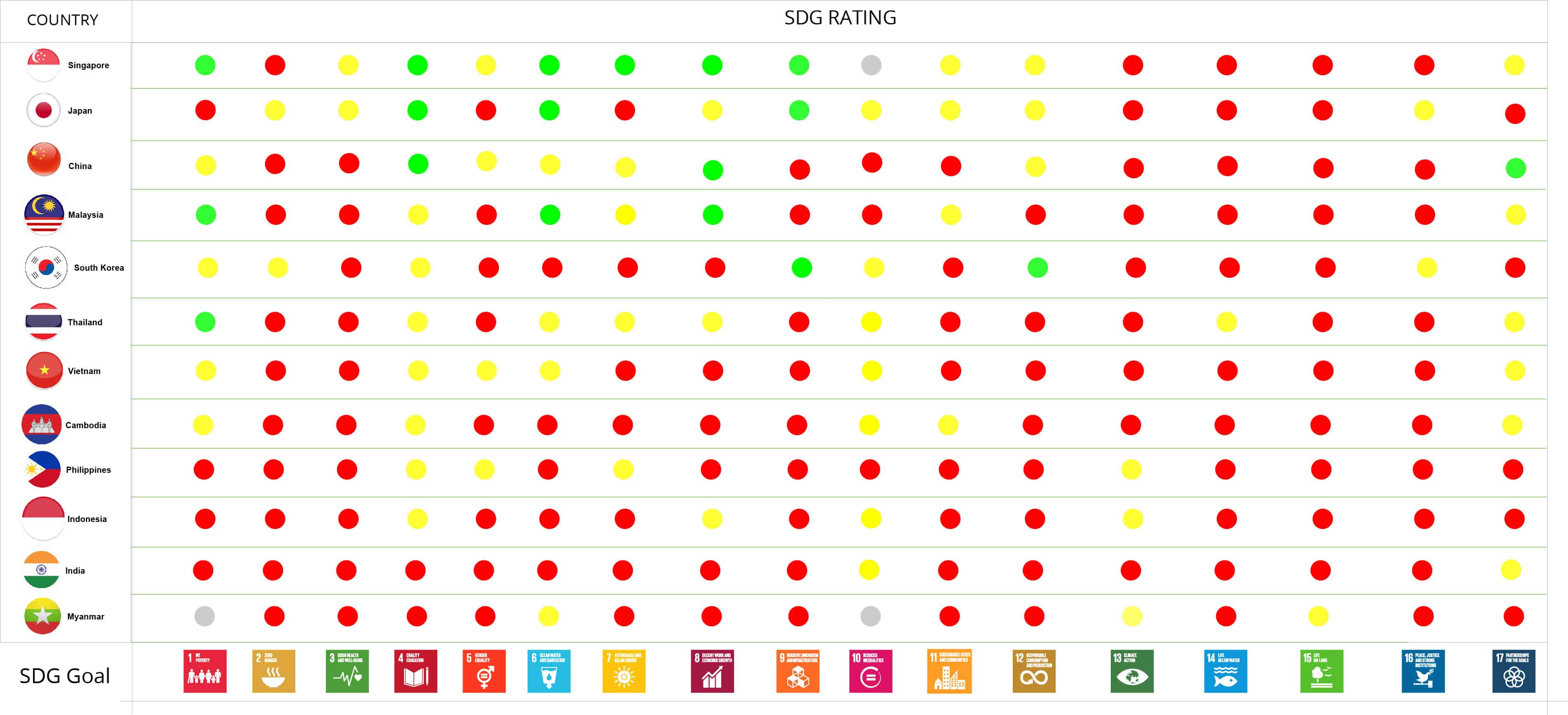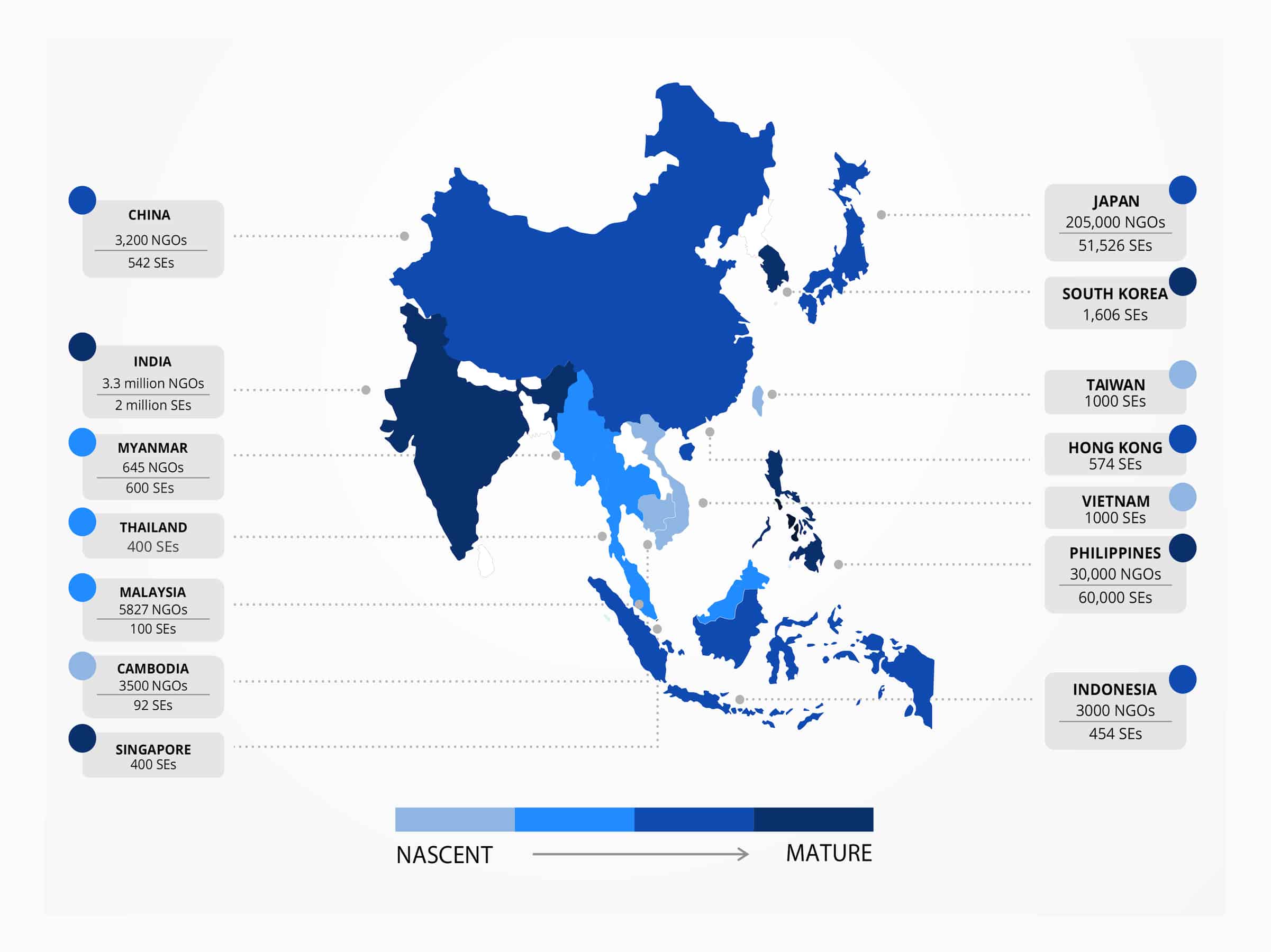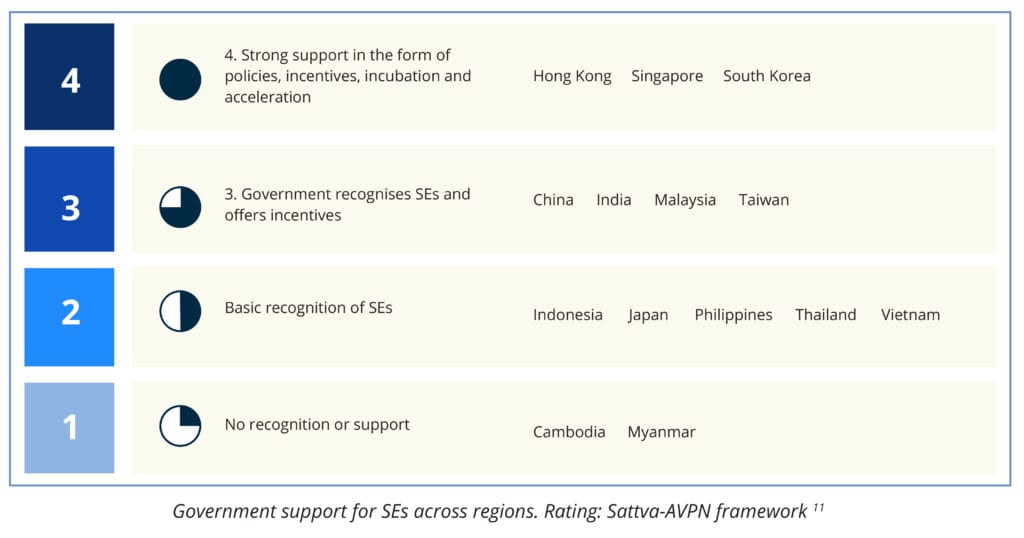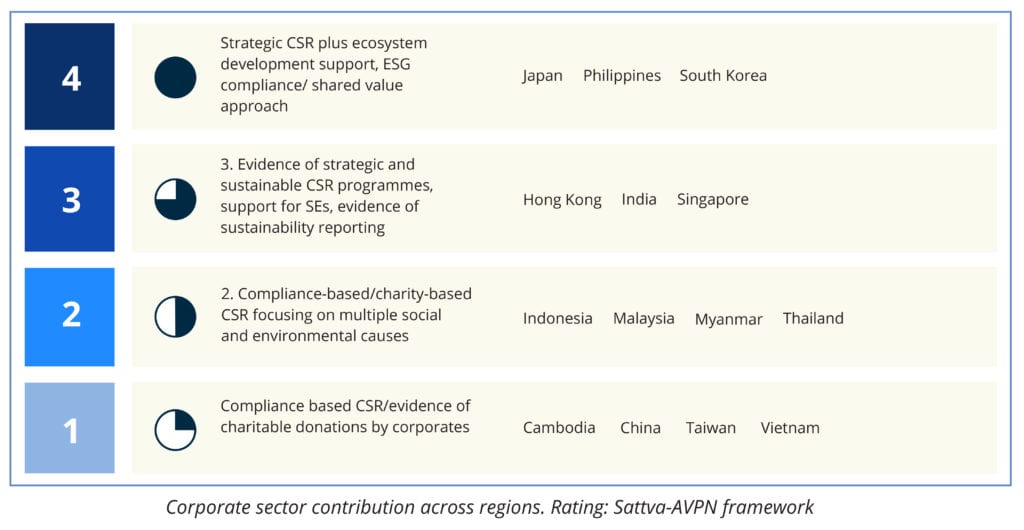Overview
The Social Investment Landscape Report is a resource for social investors assessing opportunities for collaborations, and maximising impact in new markets or initiatives. The Knowledge Centre Team profiled 14 Asian social economies spanning North, South, and Southeast Asia before presenting key societal needs, existing initiatives and prominent players in the ecosystem for each social economy.
SDGs’ Cohesive Framework Addresses Diverse Set of Challenges
The United Nations Sustainable Development Goals (SDGs) highlighted the scale and urgency of socio-environmental-economic issues globally as well as nationally.
Social Economies Exist on a Scale from Nascent to Mature
The stage of growth of the social economy is characterised by the presence, contribution, and maturity of all actors in the ecosystem – government, SPOs, social investors and enablers.
Insight 1: Highly Engaged Social Investment is Critical to a Flourishing Social Economy
- Most of the 14 social economies are experiencing early-to-mid stages of social enterprise growth where viable pipelines are small and deal volumes are low.
- International investors, development agencies and local investors are actively supporting the development of SEs in Asia.
- There is a growing trend in more localised funds which work with those closer to the root of the problem to create social impact.
Insight 2: Governments Play One of the Largest and Widest-reaching Roles in the Social Economy
- South Korea is the only East Asian country that legally recognises SEs and offers multiple incentives to SEs as well as ecosystem-building support
- Thailand, Hong Kong, Singapore, Taiwan, Philippines have put in place progressive policies, CSR mandates, dedicated offices for promoting social entrepreneurship, seed funds and capacity building
Insight 3: Trendsetters are Emerging from Historically Religious Roots
- There is a growing movement towards social investing among HNWIs and family offices, embedded in the region’s tradition of religious giving.
- Countries with a legacy of wealth such as Singapore and Hong Kong see family foundations taking a more prominent role in strategic philanthropy.
- Responsible investment that incorporates ESG factors is growing as a strong mainstream market force for impact.
Insight 4: Corporates’ Potential in the Social Economy is Yet to be Realised
- While CSR is ubiquitous in all 14 regions, the integration of CSR with business towards shared value is less common.
- Largely, MNCs are driving CSR best practices in less mature economies, but increasing local firms are seeing adoption.
- Corporates in advanced economies such as Japan and South Korea have established venture philanthropy and impact funds.
Insight 5: Intermediaries & Partnerships Move Social Economies Forward
- Intermediaries play the key roles of building capacity of SPOs, promoting cross-sector collaborations and forging partnerships.
- While international organisations such as the British Council, Ashoka and USAID have played substantia roles in triggering the SE movements in the studied 14 regions, local players have helped sustain and grow the ecosystem with their contributions.
- Partnerships bring together diverse stakeholders for collective impact, e.g. giving circles, pooled-in CSR capital, SE funds, Collective Impact Initiatives.
Building a High-Impact Social Ecosystem Requires 5 Elements
For the full Report, please download it here.

















